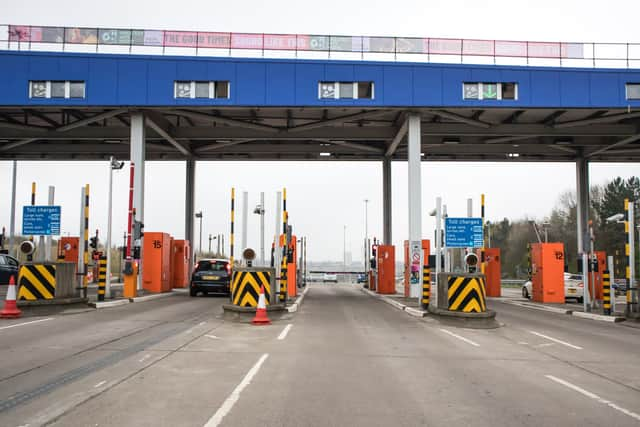Revealed! The shock amount Tyne Tunnel made on overpayments before controversial cashless switch
and live on Freeview channel 276
The Tyne Tunnel was making an average of £20,500 every month from surplus payments made by cash at toll booths before the recent cashless change.
It costs motorists £1.90 to cross the river via the tunnel and, up until earlier this month, that fee could be paid with cash.
Advertisement
Hide AdAdvertisement
Hide AdWith no change being given by the toll booths, drivers would often choose to pay £2 to use the tunnel, rather than fishing around to find the exact 90 pence.
After a Freedom of Information request by NewcastleWorld.com, it has emerged that the tunnel generated an eye-watering revenue of £20,500 per month just from those surplus payments.
That 12-month average added up to a total of £266,512 since October 2020.
At its peak, in November 2020, £23,197 was made from surplus payments.
Loading....
Advertisement
Hide AdAdvertisement
Hide AdThe month with the lowest sum generated was March 2021, when £16,147 was made.
Ever since Monday, November 8 the Tyne Tunnel has run on a new cashless system.
Motorists must now pay in advance of their travel, or by midnight the day after completing their trip.
Despite a recent survey conducted by this site showing that 52.2% of users believed the cashless change was a way of generating extra revenue through fines, it also means the Tyne Tunnel will no longer benefit from overpayment revenue.
Advertisement
Hide AdAdvertisement
Hide AdThe tunnel cited time-saving and environmental reasons as being at the heart of the cashless move.


The North East Combined Authority owns the infrastructure of the Tyne Tunnel.
The Tyne Tunnel says it collects tolls to pay for the tunnel's construction, which was self-funded when constructed.
The website states: "As a private road it is vital that tolls continue to be collected to cover the costs to pay for the operation and maintenance of the tunnels."
Comment Guidelines
National World encourages reader discussion on our stories. User feedback, insights and back-and-forth exchanges add a rich layer of context to reporting. Please review our Community Guidelines before commenting.
